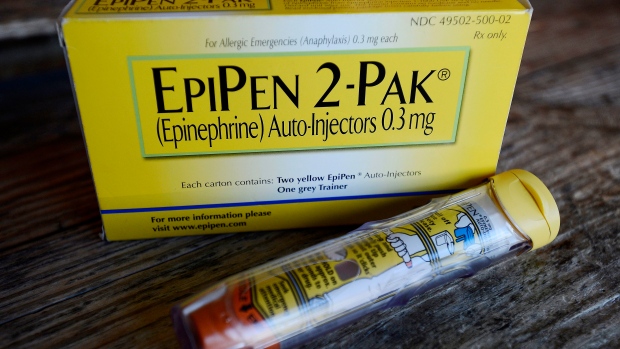Dec 7, 2016
EpiPen maker Mylan to restructure and cut global workforce
Reuters

Generic drugmaker Mylan NV (MYL.O), which has been under fire for its price hikes on the life-saving EpiPen allergy treatment, said on Wednesday that it would restructure and expected to cut less than 10 per cent of its global workforce.
Mylan, whose shares were down 5 per cent in morning trading, has been under investigation by the U.S. government, and its chief executive officer was called before Congress to testify on raising the price of a pair of EpiPens to more than $600 from $100 in 2008.
The company said in a regulatory filing that it would implement restructuring programs in certain locations. At Tuesday's market close, its shares had fallen 25 percent since August, when it first came under public scrutiny by former U.S. presidential candidate Hillary Clinton.
Mylan, which has about 35,000 employees, said in the filing that after a significant number of acquisitions, it would take cost-cutting measures that include workforce actions.
It said it would disclose details, including the cost of the efforts, as it finalizes the plans.
Mylan spokeswoman Nina Devlin declined to comment further.
Wells Fargo analyst David Maris said in a research note that he did not believe the company had previously discussed a restructuring but added that it had talked about "optimizing" its platform.
Mylan has been criticized for classifying EpiPen as a generic product, which led to its paying significantly smaller rebates to state Medicaid programs for the poor than it would have if the drug were classified as branded.
In October, Mylan said it would pay $465 million to settle questions of whether it underpaid U.S. government healthcare programs including Medicaid. The U.S. Department of Justice has not confirmed that it has reached a settlement.
Mylan, one of the largest U.S. makers of generic medicines, reported a third-quarter loss last month as it set aside money to pay for the settlement. It said it was still working on completing the deal.
The Canonsburg, Pennsylvania-based company said it expected EpiPen to account for 6 percent of total sales in 2017. It plans to introduce a generic version that will sell for $300 for a two-pack.
Drug price increases were a hot political topic among U.S. presidential candidates during the past two years. President-elect Donald Trump in a Time magazine article published early on Wednesday said: "I’m going to bring down drug prices. I don’t like what’s happened with drug prices."



